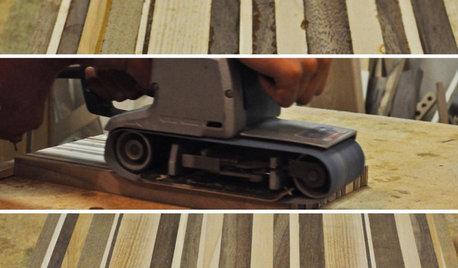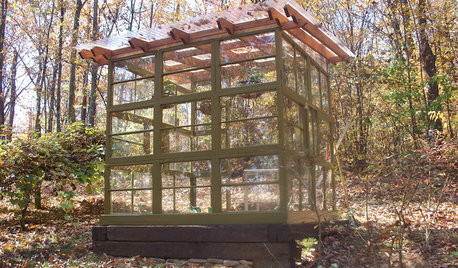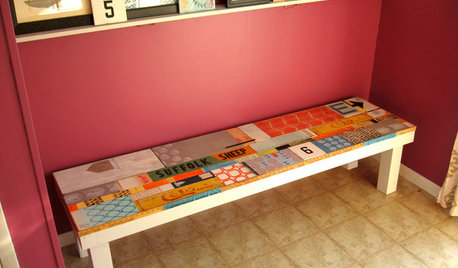kitchen scraps, part 2...
ynot
9 years ago
Related Stories

DIY PROJECTSFashion a High-Quality Cutting Board From Scrap Wood
Waste not, want not. This DIY project saves scraps from the landfill, hones your woodworking skills and produces a gorgeous kitchen piece
Full Story
GARDENING AND LANDSCAPINGSee a Family Greenhouse Grown From Scraps
Can-do resourcefulness and less than $400 lead to a new 8- by 8-foot home for plants on a Tennessee family's property
Full Story
TRANSITIONAL HOMESHouzz Tour: Part Traditional, Part Modern and All Family Friendly
With clean lines, vintage touches and durable surfaces everywhere, this Los Angeles home balances tastes and needs beautifully
Full Story
LIFETime Travel to Houzzers' Childhood Homes, Part 2
Catch a glimpse of kit houses, bungalows, Tudors and more just as they were way back when — and listen in on the intriguing personal stories
Full Story
HOW TO PHOTOGRAPH YOUR HOUSETake Better Photos of Your House in a Snap: Part 2
Think like a professional photographer and learn to capture stunning images of your home
Full Story
KITCHEN DESIGNKitchen of the Week: A Part-Time Space Fully Satisfies
A scaled-down approach doesn't mean sacrificing, in this heavenly white kitchen with all the modern conveniences
Full Story
KITCHEN DESIGNAlternatives to Granite Countertops, Part III
9 more reasons to rethink the granite kitchen counter
Full Story
WOODWORKINGDIY Project: Artful Scrap-Wood Bench
Salvage signs, block-printed wood and a secret compartment turn a handmade bench into an interactive work of art
Full Story
KITCHEN DESIGNKitchen Takes Off in a Former Aircraft Parts Factory
Generous storage and clever carpentry transform a cluttered kitchen into a sleek, minimalist living space with an eclectic heart
Full Story
KITCHEN DESIGNNew Year's Resolutions for Your Kitchen, Part II
Here's how to make your new kitchen more functional and fabulous this year
Full StoryMore Discussions






Kimmsr
lisanti07028
Related Professionals
Fort Lee Landscape Architects & Landscape Designers · Brentwood Landscape Contractors · Bridgeview Landscape Contractors · Coeur d'Alene Landscape Contractors · Fair Oaks Landscape Contractors · Huntley Landscape Contractors · Mahwah Landscape Contractors · Olympia Landscape Contractors · Smyrna Landscape Contractors · Waterford Landscape Contractors · Maple Grove Decks, Patios & Outdoor Enclosures · Brentwood Decks, Patios & Outdoor Enclosures · Centennial Decks, Patios & Outdoor Enclosures · Conroe Decks, Patios & Outdoor Enclosures · Hampton Bays Decks, Patios & Outdoor Enclosurestoxcrusadr
lazy_gardens
glib
ynotOriginal Author
luckygal
toxcrusadr
grubby_AZ Tucson Z9
ynotOriginal Author